The Force of Destiny, ENO’s latest offering to its ‘stakeholders’, as its audiences are now called thanks to Cressida Pollock, the new CEO, is perhaps Verdi’s most interesting failure. It’s an opera with too much fine, even magnificent, music to be neglected, but it doesn’t add up to a satisfactory experience. Even epics, which Force is routinely categorised as, have their limits of accommodation. Henry James described War and Peace as ‘a loose, baggy monster’, but what would he have called Force if he had had the least interest in opera or music? There are times when we are longing for the central story of vengeance and fate to get a move on. The inserted episodes of low life are mainly of inferior quality; I’m thinking especially of Preziosilla, a gypsy but at ENO ‘a soldier’s widow’. Fra Melitone, the grouchy monk who loathes doing charity work, is musically interesting but dramatically null.
And the heroine, yet another agonised Leonora, disappears from the action, retreating into her monastic cell, for most of the opera after Act II. Force doesn’t so much end as peter out, with Leonora strangling herself, and her half-breed lover Alvaro vaguely hoping for redemption. No more adequate than the end of the next opera, Don Carlo, though there we care desperately about the characters and here we never get a chance to really understand them.
Everyone expects Calixto Bieito, the director, to do something horribly colourful, but here he has opted for a black and grey view of the world, mainly black. The set designer Rebecca Ringst has supplied him with a large, fidgety set of house façades, permanently semi-collapsed, blank windows. There are many blown-up photographic projections — of people, especially children, and of an alarming vast horse’s head: they are stirring. There is as little action as possible, and no props apart from a pistol and a bowl of gruel. The chorus, whether of monks, passers-by or soldiers, stands at the back, occasionally at the front, motionless. It is impressively bleak, and successful. The only colour, as one would expect, is red, the blood of her father on Leonora’s hands, and on the Surgeon’s uniform.
Of the principals, only Anthony Michaels-Moore as Carlo, Leonora’s brother, bent on avenging his father’s accidental death at the hands of Alvaro, is a convincing actor. He was also, on the first night, in superb voice, and the dominating figure on the stage. Leonora is taken by the young American Tamara Wilson, who floated marvellous soft high notes, a speciality of Leonora’s; she is still developing her middle register, but when she does is likely to be a major Verdi artist. Wisely Bieito did not require her to disguise herself as a man, so the historically minded might wonder if she would have been accepted into a monastic order, even in 1936, when this production is set. The most beautiful section of a deliberately unbeautiful score, the chanting of the monks with Leonora’s voice soaring above them, was wonderful. Gwyn Hughes Jones as Alvaro, the opera’s central character, lurched around clumsily but sang as powerfully as I have heard him. And the Father Superior, James Creswell, was sonorous enough to take his place in the grand tradition of singers of this role.
The conductor is Mark Wigglesworth, and the playing he draws from his orchestra is fantastic, if, for this piece, a bit over-refined. He opts to play the original overture, disconcerting to anyone who loves the usual version: he is right to say that the opening scene is flat after the heroics of the full-blown version, but it is flat, almost fatally so, anyway. The many instrumental solos were among the evening’s most poignant moments, and balances were perfect. That this isn’t a great evening is the responsibility of Verdi rather than this production.
I have space only to mention Wolf-Ferrari’s Le donne curiose, which the Guildhall School of Music and Drama mounted as its termly production last week. It’s a lightweight piece from this Italo-German composer, not his finest work, but fun. Ideal, in fact, for the GSMD, with a large cast, all of them fluent in Venetian. The production by Stephen Barlow was brilliant, the opera whizzed along, thanks to a combination of Mozartian and Falstaffian influences and energies. The curious women wonder what their menfolk are up to at their club, which turns out to be nothing more scandalous than eating and drinking. It’s so good-natured as to be almost insipid, but the pace and brevity save it, certainly in this account.
Got something to add? Join the discussion and comment below.
Get 10 issues for just $10
Subscribe to The Spectator Australia today for the next 10 magazine issues, plus full online access, for just $10.

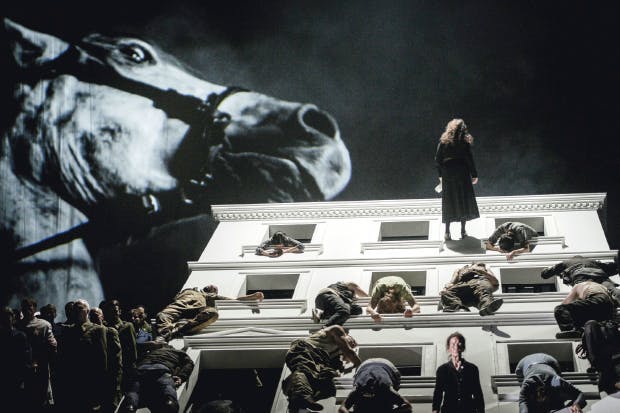
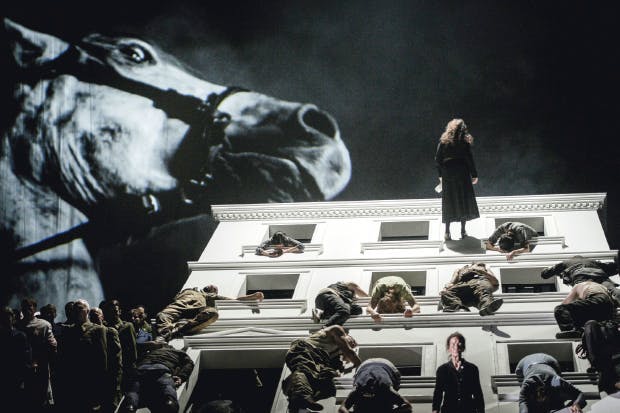
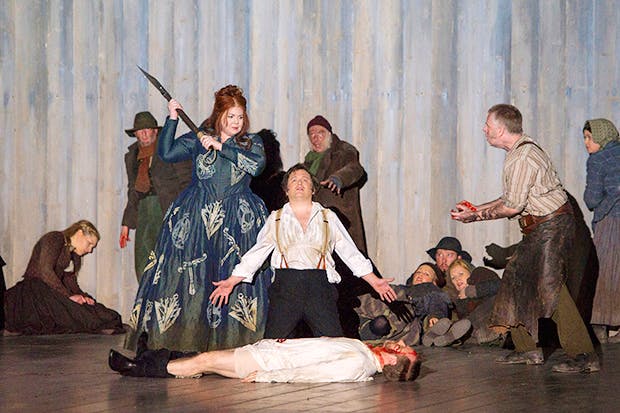
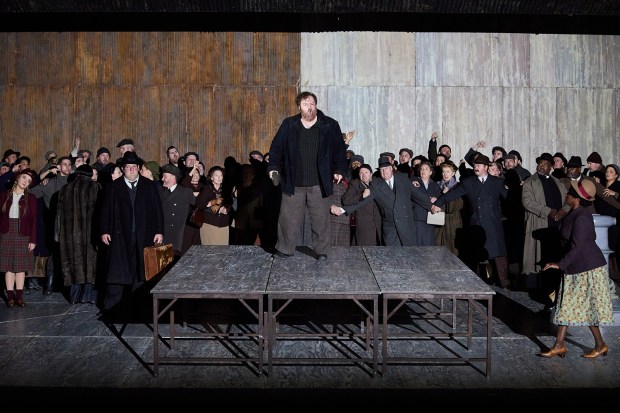
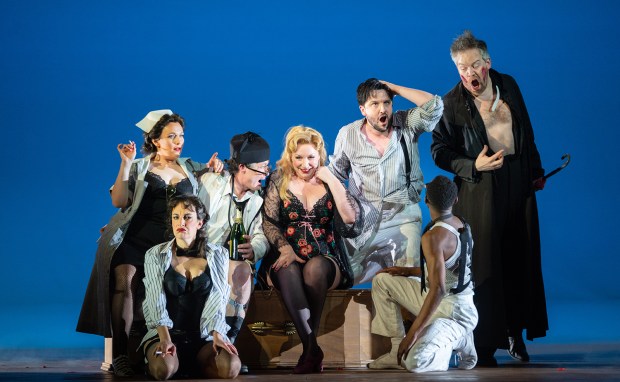







Comments
Don't miss out
Join the conversation with other Spectator Australia readers. Subscribe to leave a comment.
SUBSCRIBEAlready a subscriber? Log in